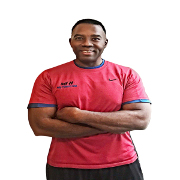So, are you burning body fat and losing weight or just losing water weight? When you gain weight without exercise, the weight gain is usually fat and water retention. One big cause of water retention is too much salt consumption (sodium). If you eat many processed foods and not many whole, natural foods, your sodium consumption is too high---and you will take on more water weight.
When you have rapid weight loss through severe calorie restriction, much of that weight loss will be water weight. So, you find yourself regaining this weight quickly when you begin to eat the carbohydrates, proteins and fats that your body needs. Why? Because you will also replenish water stores in your body's cells.
You need to lose your weight the right way to avoid the "yo-yo effect" of rapid weight loss and even more weight gain. You must maintain a caloric deficit to lose weight. If you consistently eat more calories than you burn (caloric surplus), you will consistently gain weight and add on body fat. This does not mean that you need severe calorie restriction to reach your fat loss and weight loss goals!
Rapid weight loss motivation focuses on pounds lost instead of body fat burned and inches lost. Fat loss is more important than weight loss.
Rapid weight loss many times uses severe calorie restriction dieting which leads to low energy, slowed metabolism, a weaker immune system, hormonal imbalances, loss of muscle mass, increased body fat, disrupted sleep patterns, short-term results and yo-yo dieting.
So, what are you to do? Lose as little water weight as possible so your body is forced to burn more body fat. To limit losing water weight:
1. Eat small meals of whole, natural foods every 3-4 hours. Also, eat protein with every meal. Protein will help you feel full for a longer period and help repair and rebuild your muscles. Eat to build muscle and control your binge eating during the day so you don't overeat when you do eat!
2. Exercise regularly with strength training (3 days a week) and short interval cardio sessions (3-4 times a week). Your strength training sessions only need to be 40-50 minutes and your cardio sessions only need to be 20 minutes. Too many long, slow cardio sessions (like 60 minutes) will eat away at your muscles.
You could even try 2 strength training sessions on your workout day. Research proves that two 20-minute workouts will burn more fat and calories than one 40-minute workout. Doing a second workout during the day (even a short one) keeps growth hormone levels high throughout the day. This will give you even more body fat burn.
3. Never do crash diets or severe calorie restriction! This will usually lead to yo-yo dieting and even more weight gain! This type of eating will also give you a low quality of life!
4. Don't lose any more than 2 pounds per week (on average). At the beginning of a new exercise program, you will probably lose 6-8 pounds the first week (maybe more if you are obese). The weight loss will even out over time.
Don't become frustrated when one week you lose 5 pounds and the next week you lose 0 pounds! Growing your muscles increases lean body weight. More lean body weight increases your metabolism, which helps you burn fat!
Periodically check your body fat percentage. You could be losing inches. You could be burning body fat and losing inches while your weight remains constant. This is a good thing because your body is changing its composition (more muscle mass, less fat mass).
Be patient and eat right, build muscle, burn the fat and lose the weight! This process will keep the weight off and you will keep your lean and toned body!
Mark Dilworth, Certified Personal Trainer
Her Fitness Hut http://herfitnesshut.com





Add a CommentComments
There are no comments yet. Be the first one and get the conversation started!